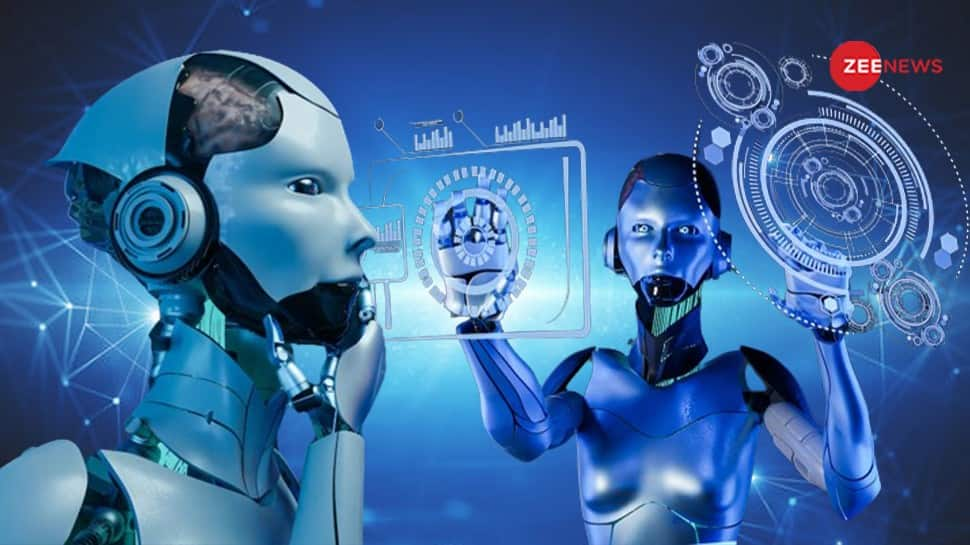Impact of AI And Robotics On Job: In the world of fast-paced technology, the development of robots and artificial intelligence (AI) has revolutionized the industrial landscape of today. AI and robotics are hailed as mechanical wonders that guarantee effectiveness, efficiency, and development. These headways additionally bring up basic issues about their effect on work across different areas or sectors.
There are concerns about job displacement and workforce restructuring are growing as robots and AI systems become more sophisticated. However, policymakers, businesses, and individuals alike must have a thorough understanding of the nuanced effects of automation on various industries.
Role Of AI And Robots in the Manufacturing Sector:
Notably, AI and robotics have significantly altered traditional job roles in the manufacturing sector. Earlier, fabricating has consistently depended on industrial facilities and mechanical production systems, which have utilized a large number of individuals everywhere. However, this landscape has undergone significant transformations because of the incorporation of robotic automation.
“Applying robotics and artificial intelligence institutionalizes change in industries with fear of job loss in various sectors. Manufacturing is witnessing automation of work activities ending up with new positions that require technical proficiencies. Manufacturing is not the only sector experiencing such effects, though; the same goes for healthcare and transport”, said Sanjeev Kumar, Founder and CEO of Alphadroid.
Sanjeev further mentioned, ” government needs to invest in STEM (science, innovation, designing, and math) and lifelong learning, encourage more cross-sector collaboration, and safeguard structural transformative ness to counter automation’s impact and prioritize job creation”,
In the arena of dynamic technological change, the robots are outfitted with cutting-edge sensors and AI calculations that can perform tasks with accuracy and speed, frequently unparalleled human abilities. Hence, low-skilled workers are losing their jobs because of the increasing automation of manual and repetitive tasks.
Creating More Job Opportunities:
Despite these difficulties, the development of mechanical technology and man-made intelligence are opening the doors for job opportunities. As we all know, some tasks become automated today, and new roles emerge that require technical expertise, problem-solving skills, and human oversight.
Technicians, for instance, are needed to maintain and program robots, engineers are needed to design and make automated systems work better, and data analysts are needed to get information from production processes. A shift toward more specialized and dynamic job roles is reflected in the rising demand for workers with interdisciplinary skills, such as robotics engineering and business acumen.
Robots and artificial intelligence have an impact on employment opportunities and challenges in a wide range of industries other than manufacturing. The rise of autonomous vehicles poses a threat to the livelihoods of truck drivers and delivery workers in the transportation sector. Programming engineers, information examiners, and online protection experts are expected to help these innovations simultaneously. To adapt to AI-powered diagnostic tools and robotic surgical systems, healthcare professionals may need to retrain.However, they may also increase efficiency and accuracy.
AI And Automation May Generate 555 Million New Jobs
A McKinsey Global Institute report states that while AI and automation may result in the loss of approximately 400 million jobs worldwide, they may also generate up to 555 million new jobs. There will be critical work development driven by rising wages, expanded medical care spending, and interests in framework, energy, and innovation through 2030.
The gains will be greatest in emerging economies like India, which have populations of working-age people growing rapidly. Additional jobs will be created because of economic expansion and rising productivity.
Jobs In Creative Fields:
While certain businesses experience critical disturbances, others remain moderately protected because of the intricacy of undertakings or the need for human collaboration. For instance, jobs in creative fields like design, art, and content creation are less likely to be automated because they rely heavily on human creativity and emotional intelligence.
Similarly, it is difficult to replicate with AI and robotics alone the interpersonal skills and empathy required for service-oriented roles in hospitality and customer service. Policymakers and businesses alike must adopt tailored strategies to minimize the risk of job losses and maximize the benefits of technological innovation because of the sector-specific implications of automation.
Shaping The Future of AI and Robotics:
Public-private partnerships can drive AI and robotics research and development, whereas societal values and ethical considerations drive innovation. Additionally, programs like apprenticeships, career transitions, job placement services, subsidies for reskilling and upskilling, and job placement services can assist individuals in finding new employment opportunities. The wider socioeconomic effects of automation, such as the redefinition of labour rights, job polarization, and income inequality, must be addressed simultaneously by policymakers.
Job Security In The Age of AI
The negative effects of job displacement can be mitigated and inclusive economic growth promoted by putting into place measures like universal basic income, progressive taxation of profits generated by automation, and assistance for worker retraining.
Besides, encouraging a culture of long-lasting learning and variation is fundamental for cultivating flexibility despite innovative disturbance. Eventually, innovative headways, market influences, and cultural standards shape the complex and dynamic effect of man-made intelligence and robots on positions.
While customary business models face challenges because of mechanization, it additionally presents new open doors for monetary development, business, and advancement. By adopting a holistic approach that prioritizes human-centric solutions and takes into account sector-specific dynamics, society can navigate the complexities of the automated future while ensuring that no one is left behind.




